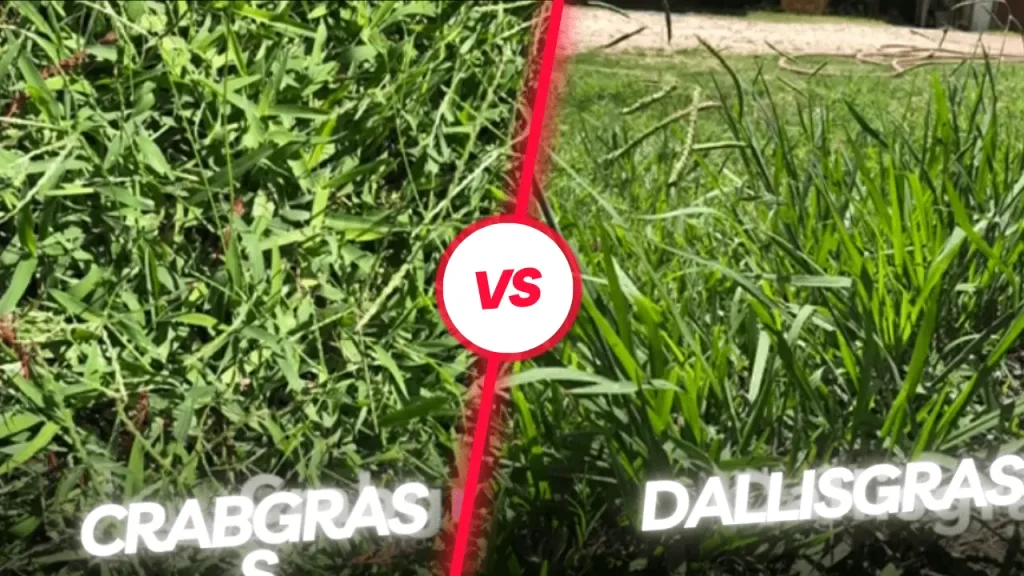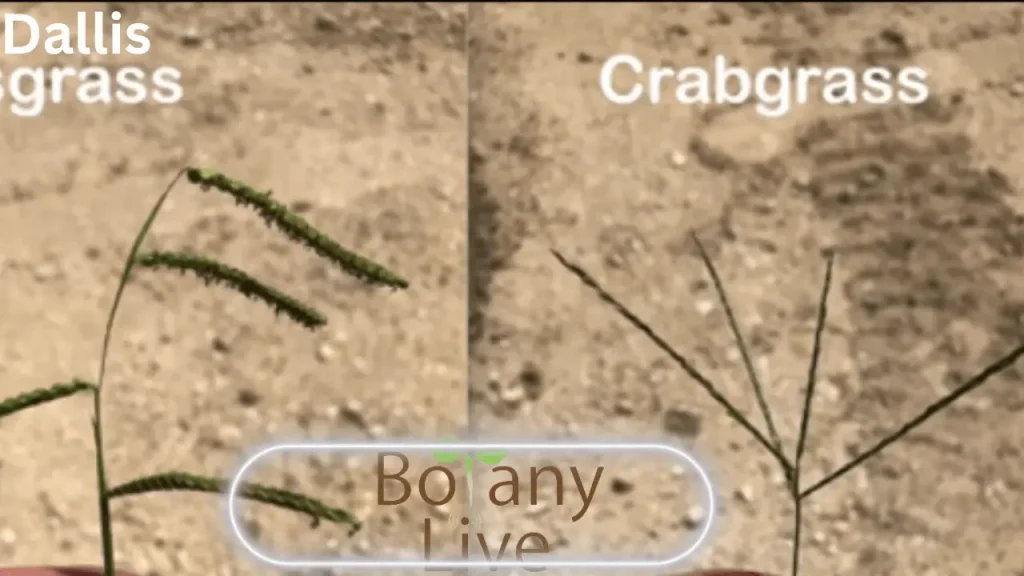Dallisgrass vs Crabgrass | Key Differences (Pictures) and Control
I am much concerned about the weeds and the beauty of my lawn. Are you a person of the same kind? Well, all of us want to have a nice outlook of the lawn with green grass. But some grassy weeds may invade your lawn and it is quite difficult to handle these. They are tough to identify and eradicate. However, the control measures become more and more complicated if you have identified the weed wrong. There is a slight difference between the two annual grasses of Maryland and North Virginia and thus you may get confused while telling the differences between Dallisgrass vs Crabgrass

Key Differences: Dallisgrass vs Crabgrass
| Feature | Dallisgrass | Crabgrass |
| Plant Height | Taller, 9-12 inches in height | shorter, spread with only 4-6 inches height |
| Plant Stand | Upright | shorter, spread with only 4-6 inches of height |
| Seeds | Larger with black spots | Small, fine |
| Seed Heads | On the side of the stem | On the top of the stem |
| Seeds per plant | 150,000 seeds | 100,000 to120,000 seeds |
| Areas | Maryland, North Virginia | Maryland, North Virginia, St Augustine |
| Uses and Importance | Spread | Dead and dry hay is a feed |
Following are some of the main differences in detail
Plant Morphology
Morphologically, both weeds are different on the following grounds;
- Grass Height – This one is the easier and more observable difference. Dallisgrass is taller than the Crabgrass. It looks taller as it stands up while the crabgrass is spread in nature.
- Leaves Appearance – The leaves of Crab Grass are broader and thus they love to spread to the lower end while those of Dallis are narrower.

- Leaf Color – Although there is a slight difference yet, you will notice a bluish-green color in the leaves of Crabgrass. The other partner is pale green in appearance.
- Seeds – One can easily tell the difference between the Dallisgrass and Crabgrass physically by looking at their seeds. Seeds of Dallisgrass are large, and rough, with spots on them. On the other side, seeds of Crabgrass are small, fine, and shiny.
- Seed Head – This is one of the striking differences. Anyone can notice it. Seed heads of Crab Grass are small, fine, and grow at the top. However, in Dallis Grass, seed heads are larger and grow from the sides of the stem laterally.
Plant Physiology
As you are quite curious to know more about the differences between these two weeds, the following differences will let you know more clearly about these.
- Growth Habit – They both grow aggressively and will occupy your lawn in months. Dallisgrass grow from seeds, clumps, and vegetative parts as well. The crabgrass is grown only through seeds. Thus they can easily occupy and be overcrowded in your lawn with such successful growing mechanisms. Moreover, dallisgrass grows slowly in diameter, spreading all around and giving a growth pattern. It produces more tiller. The number of tillers may be 150 to 700 tillers. Every tiller can produce 2000 seeds. Thus a plant can produce up to 150,000 seeds.
- Life Cycle – Here is another big difference between Dallisgrass vs Crabgrass. Crabgrass produces seeds and every year, germinate from the seeds in the soil – annual. Dallisgrass loves to grow from the root system of the previous year – perennial.
- Growth Appearance – As the crabgrass is spread in nature, it spreads like fireworks, random, and wide. However, Dallisgrass gives circular clumps like outgrowth.
How to Control Dallisgrass and Crabgrass
Controlling these weeds will help you recover the aesthetic value of your lawn. There are diverse management strategies to control and get rid of these pesky weeds. After recovery, you can add more ornamental plants like Clusia Hedge, Blue Orchids, and Vinca Vines around your garden.

How to Control Crabgrass?
As the crabgrass regrows through seeds, it is better to control it before seed shedding or germination. For this, it is better to apply pre-emergent herbicide. This herbicide is applied to the soil and it limits the germination of the target plants or herbs. Moreover, applying two split treatments with a gap of 2 weeks will give you a better result. Usually, 1st dose is applied in the start of the March and second in the last week of March. It is recommended to apply fertilizers after the treatment of the herbs.
How to Control Dallisgrass?
However, as the Dallisgrass has more growing options like the root system and seeds, it is quite difficult to control it. A selective herbicide can be the best option. Here, again, you need to apply 2 sprays to get a clean lawn.
Note
If the treatment is not working for a specific part of the area, then go for spot application in that area
Preventive Measures for Grassy Weeds
The following 6 preventive measures can help you to get rid of these troubleshooting weeds.
- These weeds love to grow in thin and stressed grassy lawns. Keep your lawn thick to prevent the growth of Dallisgrass and Crabgrass.
- Always mow your grassy garden keeping it 3-4 inches tall. This height ensures better growth.
- Never leave your grass without mowing. Tall and leggy grass causes shade and the shade can cause germination of the grassy weed seeds.
- Water grassy fields regularly. Keep watering frequently and always apply light irrigation but more frequently.
- Try to use better soil or soil medium. A better mixture can give you a better start and healthy grass.
- Crabgrass preventer can help you to get rid of this grassy weed. Apply crabgrass preventer along with lime after the irrigation. This makes it more effective.
Note
Horses can eat crabgrass. Use it as feed for horses after the application of preventer with care. It is recommended to use it for feed after 8-10 days.
FAQs
I’m Dr Qaiser Maqsood (PhD), a dedicated researcher and expert in Biological Sciences, Gardening, Bio-Diversity, Ecology, and Environmental Sciences. I’m much concerned about Environmental Pollution, Climate Change, Plantation, Gardening, and Global Warming. My passion is to explore innovative solutions in all these fields.
Be aware that we have ONLY ONE EARTH. Protect it!!
